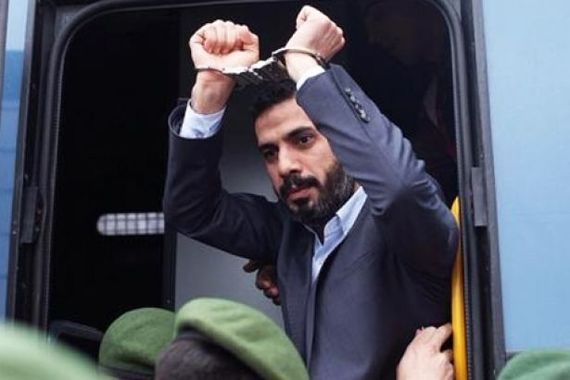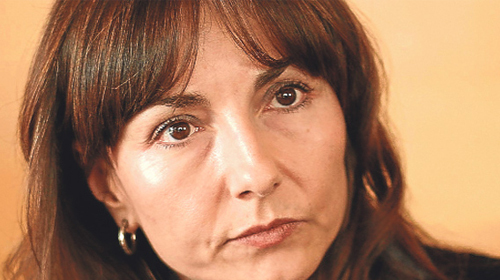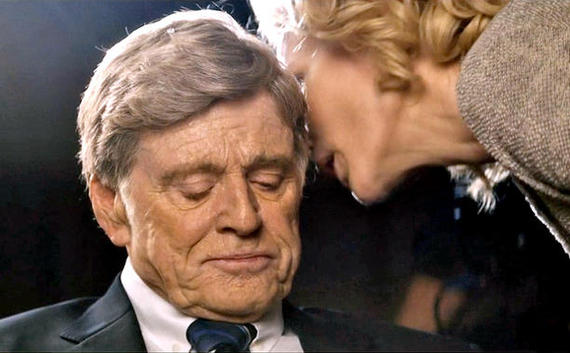On Nov. 17, today, a few colleagues and human rights observers will be present to witness when Mehmet Baransu, one of the very few bold investigative reporters in Turkey, faces a court in İstanbul on charges of "revealing secret state documents."
In plain English, he is accused of being a spy.
Is journalism a crime?
The prosecutor, as in many other cases so "routine" these days in Turkey, is trying to prove that it is.
Baransu, who is best known for his extensive reporting on the notoriously used and abused "Sledgehammer" coup case, has been held in solitary confinement since his arrest on March 1 this year.
He complained constantly of mistreatment.
Under these circumstances, institutions such as the Committee to Protect Journalists (CPJ), Reporters Without Borders (RSF), the International Press Institute (IPI) and the World Editors Forum (WEF) should have been knocking at the gates of Silivri High Security Prison to meet the reporter.
Even a joint delegation of seven such international organizations recently visiting Turkey apparently decided not to highlight the Baransu case.
At home, just because Baransu -- a Kurd with no leftist, right wing or Kemalist politics in his bag -- had conducted critical reporting about the military, his colleagues and deeply politicized domestic journalist organizations have remained apathetic about his case, or are even hostile to him.
Baransu's isolation was so severe that it led his wife Nesibe to write an open appeal to the G-20 leaders, who met in Antalya recently, to ask for help.
"Mehmet Baransu, an award-winning journalist, has been arbitrarily deprived of his freedom, despite the lack of concrete evidence against him. I would like to bring to your attention that universal human rights, the right to fair trial and freedom of expression are being undermined [in this case]," she wrote to President Obama, Chancellor Merkel, PM Cameron and others, to no avail.
Baransu is up against more than 50 court cases, coming to a total sentence of 1,000 years in prison.
In addition to the Sledgehammer documents, the cases filed against him include the release of National Intelligence Organization (MİT) documents that show MİT profiling senior Republican People's Party (CHP) and Nationalist Movement Party (MHP) officials and publishing reports about genetically modified rice in Taraf in 2013.
"There are so many cases filed against me. Believe me, I don't know which one to write about. The only thing that consoles me is that all of these cases concern merely journalistic activities," Baransu wrote in a recent letter from prison:
I am accused of attempting to stage a coup with carcinogenic rice. The prosecutor's claim is this: 'Baransu wrote a report about carcinogenic genetically modified rice; the world press would have seen his report and used it. The world press would create the image that the government is protecting businessmen close to itself. Being weary of pressure, the government would resign and a coup would take place'.
This is only one element in the Kafkaesque situation.
There is much more.
Those have seen the recent and highly recommended movie "Truth" (with Robert Redford as Dan Rather and Cate Blanchett as his producer Mary Mapes) about the Killian documents case, would see some striking similarities ¬-- that in order to divert public attention from truth, the enemies of journalism manage to blow up murky, tiny details in a story, ending up declaring journalists as the scapegoats and culprits.
''Does this not mean giving up on journalism?'' asked Ms Yasemin Çongar, the managing editor of Taraf at the time of Baransu's stories. ''Should we argue that journalists should simply ignore the right of the public to be properly informed and stay away from documents and evidence showing illegal activities conducted within the government?''
''What we did was journalism, nothing else.''
In a detailed defence of Baransu and the profession under severe legal pressures in Turkey, here is, in summary, what Çongar wrote for the independent news site, T24.
Five years ago, Mehmet Baransu drafted news reports based on documents he received. He shared these documents with the editorial staff of the Taraf daily where I worked at the time. These news reports were based on evidence and documents suggesting the existence of coup preparations. The documents were never reproduced other than in the reports published by the Taraf daily. They were not taken out of the building, and Baransu later submitted the original copies to the İstanbul Prosecutor's Office upon the state's request.Now, on what charges was Baransu taken under arrest? Those who are angry with Baransu avoid giving a response to this question. They miss the real matter used to justify the arrest of a journalist, or they directly or indirectly endorse the legal action.Now, it is being argued that Baransu drafted fake documents and committed military espionage.
Would a journalist really submit the documents he holds to the state if he made them or thinks they are fake? Would a journalist really submit the documents and evidence to the state and publish these items, if his purpose is to sell these documents and military secrets to other states?
But it appears that Baransu was not arrested because of these rumors. He is being accused of acquiring information that should have been kept confidential in the interests of the state and national security under Article 327 of the Turkish Penal Code (TCK). Should we now assume that coup preparations are legal and that they should be kept confidential for national security?
Should we argue that journalists should simply ignore the right of the people to be properly informed and stay away from documents and evidence showing illegal activities conducted within the state? Does this not mean giving up on journalism? Does this not mean giving up on Article 3 of the Press Law and Article 28 of the Constitution?
There is also an argument suggesting that some of the documents might have been modified or created on different dates. This allegation should be investigated properly so that the truth is revealed. But shouldn't such an investigation be run within the military first?
The documents acquired by Baransu included a number of details that a non-military figure couldn't possibly be familiar with. Besides, copies of these documents were also seized at the Gölcük Naval Command. Shouldn't the state, particularly the armed forces, start from here to find an explanation?
The state itself should look for the source of the documents that appeared in its own courts and at the modifications, if any were made, of these documents. As a former official of the daily newspaper that published the Balyoz reports -- and as someone who undersigned those reports -- I want the truth on this matter.
When I read the documents and listened to the CDs that served as the basis of those reports, I concluded that there was actually a coup plan devised in the army in 2003. I still hold this view.
If you listen to what those commanders said in the CDs (which they do not deny) you will conclude that there was a plan seeking to topple the government. The memories of the then-chief of staff, and the then-commander of land forces on what happened in the 1st Army Command can be found in the books and in records.
If you do not expend any special effort to ignore coup plans, you will see in the papers and documents whose authenticity is not denied by the commanders that there was a coup plan.
Of course, this does not eliminate the possibility that some of the papers serving as the basis for the Balyoz case were not modified. Such modifications would mean that a great opportunity to deal with coups is being wasted and that an important legal process is being compromised.
I have the impression in the Sledgehammer case that some innocent figures were also prosecuted. This is a grave injustice and victimization. Alternatively, if there were modifications that would lead us to conclude that a coup was not committed, we would experience great social victimization in terms of a legal struggle against coup-making, with the repercussions felt for a very long time.
Those who are prone to exonerate the coups and the coup makers would not pay any attention to that. They may want to seal the whole issue by arguing that Sledgehammer was a fake case. And they may be pleased with the arrest of Baransu on charges of acquiring these documents.
But those who sincerely want justice to be served should direct the relevant questions about the Sledgehammer documents to state institutions, particularly the army. The facts will reveal who the coup makers were, who fabricated documents and who practiced journalism. What we did was journalism, nothing else.
Let's put the argument like this: If what Baransu does is a crime, so is what, for example, Glenn Greenwald or what Mary Mapes did.
Ignored by the international community, and many "colleagues" who, distorted by ideological fixations to the point that they instead of scrutinizing the judiciary's role, join the witchhunt against a messenger, one now wonders where to turn to ask for proper attention.
At this moment, I can think of no other name than Robert Redford, whose voice would make a difference. I know that he would, given his good conscience.
I am aware it all sounds a bit over the top, but this is where we are at - a stage where there is very little space left before journalism as a whole is declared a criminal activity in Turkey.



